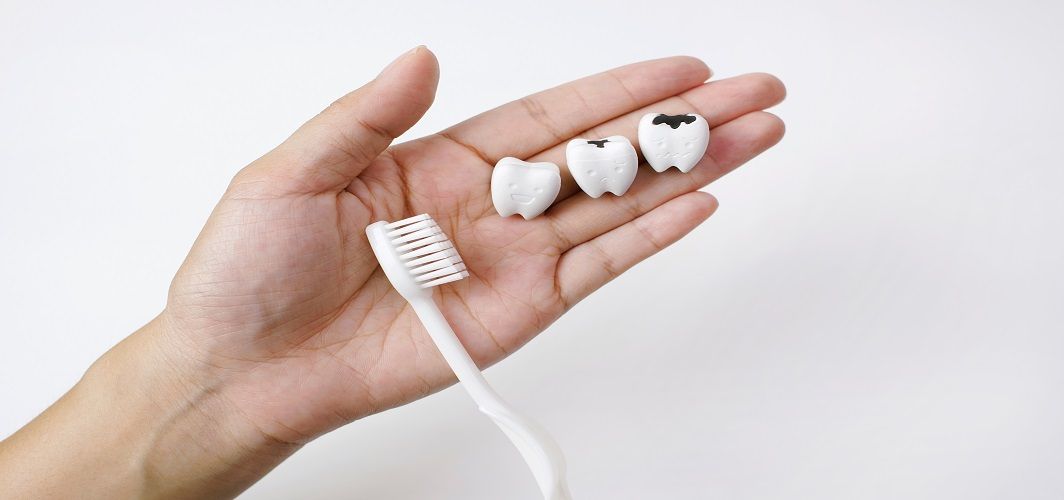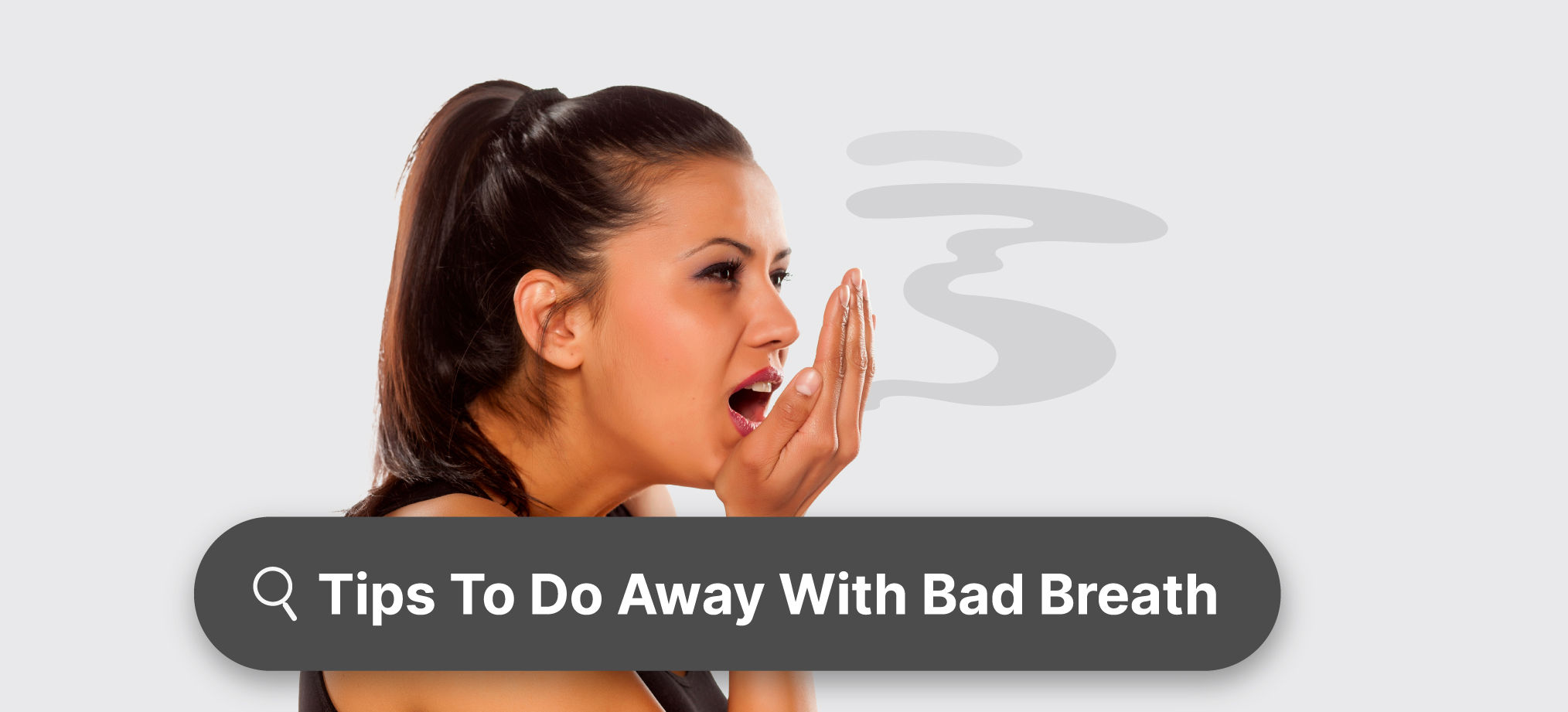Oral & Dental
4 Foods to Avoid If You Have Sensitive Teeth
3 min read
By Dr Sonia Bhatt, Dental Surgeon - 17 January 2022, Updated on - 05 January 2023
Share this article
0
2 likes

Tooth sensitivity is a common problem described as sharp, shooting pain in the teeth, usually experienced while consuming cold food and beverages. Tooth sensitivity occurs when the middle layer of the teeth (known as dentin) gets exposed due to wear, tear, and erosion. The dentin carries nerve endings and is protected by a strong calcified layer (enamel).
What Causes Tooth Sensitivity?
People develop sensitivity due to thinning or wearing of the enamel. The reasons may include:
- Consumption of foods that create acid in the mouth
- Vigorous brushing of teeth
- An injury that may have caused chipping or cracking of the teeth
- Grinding teeth at night (bruxism)
Which Foods Can Increase Tooth Sensitivity?
- Acidic foods: Regular consumption of foods with high acids, such as citrus fruits, tomatoes, pickles and tea, can cause enamel erosion and result in tooth sensitivity.
- Cold drinks: Carbonated beverages such as colas and sodas are loaded with sugar and some acids such as phosphoric and citric acids, which can gradually wear away the enamel of the teeth. Excessive consumption of cold drinks can also increase the risk of sensitivity and cavities.
- Sticky candies: The mouth is home to millions of bacteria. Candies such as refined sugar candies, lollipops, and caramel chocolates stick on the surface of the teeth, and the bacteria present in the mouth use this sugar to form acids, which destroy the enamel resulting in cavities.
- Alcoholic and sugary beverages: Cocktails are alcoholic drinks mixed with sugar syrups, soda, and fruit juices. Excessive consumption of cocktails allows the oral bacteria to grow and form acid, thereby increasing the risk of enamel erosion. Moreover, the consumption of alcohol reduces the flow of saliva, which is needed to prevent bacterial buildup on the surface of the teeth.
Recommended reading: Foods to Keep Your Teeth and Gums Healthy
How to Deal with Tooth Sensitivity?
Avoiding the consumption of acidic foods and carbonated beverages is a necessary first step, as they can expedite enamel depletion. Meanwhile, measures that can help deal with tooth sensitivity include:
- Visiting a dentist: A dentist can refill the damaged part of the enamel with tooth fillings to treat sensitivity and prevent further damage to the tooth.
- Maintaining oral hygiene: Brushing twice daily using fluoridated toothpaste and a soft-bristled toothbrush will help prevent the growth of bacteria on the surface of the teeth.
- Adding fibrous foods to the diet: Fibrous foods such as cucumber, celery, and apples involve rigorous chewing, which increases the flow of saliva.
Recommended reading: Oral Hygiene Day 2021: Importance of Oral Hygiene and How to Maintain it
How is the consumption of carbonated or acidic drinks related to tooth sensitivity?
Dr Vipul Goel, a dentist associated with Apollo 24|7, states that “Consumption of carbonated or acidic drinks can erode the enamel (the outer layer of the tooth) and expose the dentine (the part of the tooth with nerve sensations), increasing the risk of dental caries or sensitivity.”
Continuous use of carbonated beverages and acidic foods can cause irreversible damage to the teeth. Therefore, to reduce sensitivity and avoid cavities one must follow proper oral hygiene measures such as brushing, flossing, and tongue cleaning regularly. Furthermore, regular visits to the dentist can help keep sensitivity in check and prevent further damage to the tooth. Need more information?
Oral & Dental
Leave Comment
Recommended for you

Oral & Dental
Tips to Prevent or Reverse Cavities
Dental caries, often known as cavities, are the early stages of dental decay that, if left untreated, can eventually lead to the formation of a hole in the tooth. They can be undone with simple restorative procedures like filling. Run down the blog to know how to prevent cavities.

Oral & Dental
How Do Dental Aligners Work?
Dental aligners have become a much-preferred alternative to conventional metal braces as they are designed to fix your teeth in a quick and painless way. Read on to learn more about how dental aligners work.

Oral & Dental
Can Bad Breath Be A Sign Of An Underlying Health Condition?
Read to know the reasons behind bad breath that go way beyond poor oral hygiene.
Subscribe
Sign up for our free Health Library Daily Newsletter
Get doctor-approved health tips, news, and more.
Recommended for you

Oral & Dental
Tips to Prevent or Reverse Cavities
Dental caries, often known as cavities, are the early stages of dental decay that, if left untreated, can eventually lead to the formation of a hole in the tooth. They can be undone with simple restorative procedures like filling. Run down the blog to know how to prevent cavities.

Oral & Dental
How Do Dental Aligners Work?
Dental aligners have become a much-preferred alternative to conventional metal braces as they are designed to fix your teeth in a quick and painless way. Read on to learn more about how dental aligners work.

Oral & Dental
Can Bad Breath Be A Sign Of An Underlying Health Condition?
Read to know the reasons behind bad breath that go way beyond poor oral hygiene.